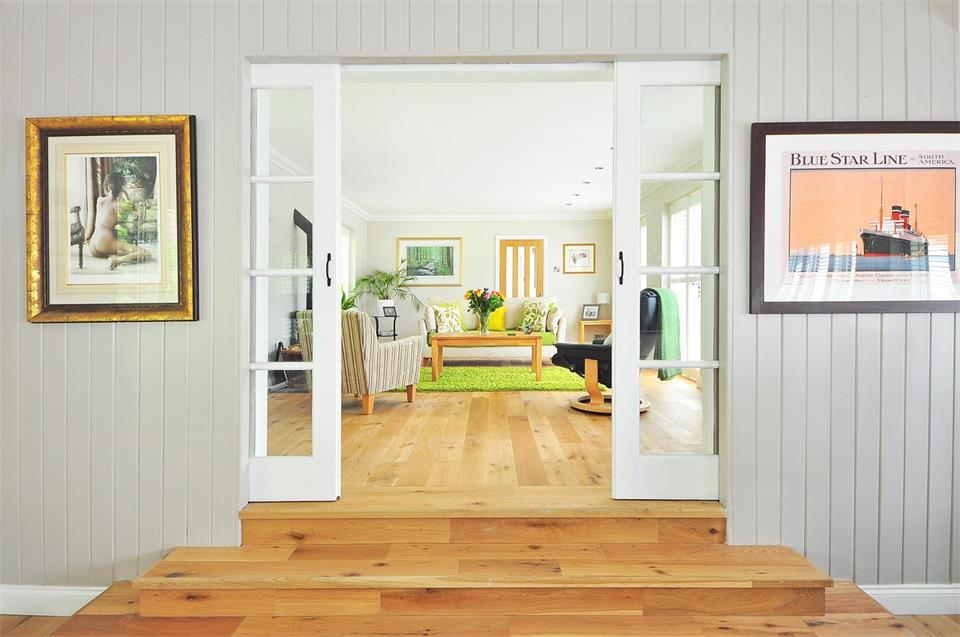The future of home living is changing rapidly, driven by the advancements in smart technology. From intelligent lighting and automated security systems to voice-controlled appliances and energy-efficient solutions, modern homes are becoming more connected and convenient than ever.
Future-proofing your home with smart technology not only enhances comfort but also increases security, energy efficiency, and overall property value.
The Rise of Smart Homes
The idea of smart homes has been gaining traction for years, but recent advancements have made it more accessible and practical for homeowners of all types. With devices that can be controlled through smartphones, voice assistants like Alexa and Google Home, and AI-driven automation, homes are evolving into intelligent spaces that anticipate our needs.
The smart home market is projected to grow significantly in the coming years. According to industry experts, the global smart home market is expected to reach over $200 billion by 2026. This growth is fueled by increasing demand for convenience, energy savings, and enhanced security.
The Benefits of Smart Home Technology
1. Energy Efficiency and Sustainability
One of the biggest advantages of smart home technology is its ability to reduce energy consumption. Smart thermostats, like Nest or Ecobee, can learn your schedule and adjust heating and cooling to improve energy use.
Similarly, smart lighting systems like Philips Hue allow you to automate lighting based on occupancy, saving electricity and reducing your carbon footprint.
2. Enhanced Security
Home security has evolved beyond traditional locks and alarms. Today, smart security systems include high-definition cameras, motion detectors, smart locks, and real-time alerts sent directly to your phone.
Smart doorbells like Ring provide video surveillance and two-way communication, allowing you to monitor your front door from anywhere in the world. These features make smart homes safer and provide homeowners with peace of mind.
3. Convenience and Automation
Imagine waking up to a home that progressively brightens your lights, brews your coffee, and adjusts the thermostat to a comfortable temperature—all without you having to lift a finger.
Smart home automation allows homeowners to program daily routines that seamlessly integrate technology into their lifestyles. Whether it’s voice-controlled devices or smartphone apps, managing your home has never been easier.
4. Increased Property Value
Smart home features are increasingly becoming a selling point for modern properties. Homes equipped with integrated smart systems are more appealing to buyers, as they offer added security, energy savings, and convenience. Investing in smart technology today can make your home more attractive and competitive in the real estate market in the future.
Essential Smart Tech Upgrades for Future-Proofing Your Home
If you’re considering upgrading your home with smart technology, here are some essential devices and systems to focus on:
1. Smart Thermostats
Having a smart thermostat is a must for any modern home. These devices can learn your heating and cooling preferences and automatically adjust to maintain optimal comfort while saving energy. Many models can also provide insights into your energy usage, helping you make informed decisions about your consumption.
2. Smart Lighting Systems
Automated lighting systems allow you to remotely control the brightness, color, and scheduling of your lights. Whether you want to set the mood for a movie night or automate lights to turn on when you arrive home, smart lighting offers flexibility and convenience.
3. Smart Security Systems
Investing in a comprehensive smart security system can greatly enhance your home’s safety. Smart locks, surveillance cameras, motion detectors, and alarm systems can all be connected to a central hub that you can monitor from your phone. Many of these systems also integrate with voice assistants, providing an additional layer of convenience.
4. Voice-Controlled Assistants
Smart speakers and voice assistants like Gemini, Google Assistant, Amazon Alexa, and Apple Siri serve as the control center for many smart home devices. They allow hands-free control of appliances, lights, and security features, making daily tasks more efficient and effortless.
5. Smart Appliances
From refrigerators that notify you when you are out of milk to ovens that preheat remotely, smart appliances bring convenience to the kitchen and beyond. These connected devices streamline household chores and can even help you save money by reducing energy waste.
6. Home Automation Hubs
A home automation hub is the backbone of a fully integrated smart home. It connects all your smart devices, enabling them to communicate and work together seamlessly. Platforms like Samsung SmartThings, Apple HomeKit, and Google Nest Hub make managing multiple smart devices from a single app easy.
Overcoming Challenges in Smart Home Adoption
While smart technology offers numerous benefits, homeowners may face some common concerns when transitioning to a connected lifestyle.
1. Privacy and Security
As homes become more connected, concerns about data privacy and cyber threats are valid. To protect your smart home from being hacked and unauthorized access, ensure you use strong passwords, enable two-factor authentication, and keep all devices updated with the latest security patches.
2. Compatibility Issues
Not all smart devices are compatible with one another, which can create complications when setting up a fully integrated system. Choose devices that support universal platforms like Amazon Alexa, Google Assistant, or Apple HomeKit to avoid issues. Investing in a central smart home hub can also help streamline compatibility.
3. Cost of Implementation
While smart home upgrades can be expensive upfront, they often lead to long-term savings on energy bills and increased home value. If budget is a concern, start small by investing in one or two smart devices, like a smart thermostat or lighting system, and gradually expand your smart home ecosystem over time.
The Future of Smart Homes
The future of home automation is incredibly exciting, with innovations in the Internet of Things (IoT), artificial intelligence (AI), and 5G technology driving new possibilities. Smart homes will continue to progress, offering more intuitive, self-learning systems that enhance efficiency and convenience.
Considering smart technology as part of the transition can be a great advantage for those planning to move to a new home.
Whether you’re upgrading your current space or relocating to a more tech-friendly environment, having a smooth moving process is essential. For professional moving services, check out finestvan.co.uk to ensure a hassle-free relocation.
Conclusion
Future-proofing your home with smart technology is more than just a trend—it’s an investment in convenience, security, and efficiency. By integrating smart thermostats, lighting, security systems, and automation hubs, you can create a connected living space that adapts to your lifestyle.
As technology continues to develop, embracing smart home innovations will keep your home ahead of the curve, offering a seamless, efficient, and more enjoyable living experience.
Whether you’re looking to enhance your daily routines, reduce energy consumption, or boost home security, smart technology is the key to a more connected future.






